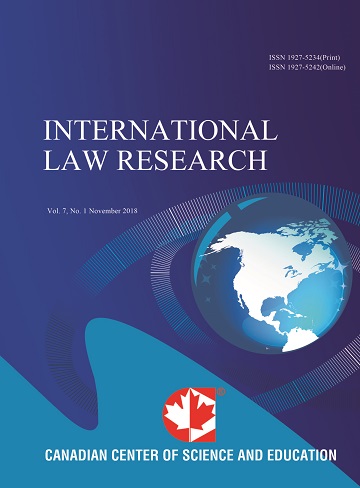Ownership and Control of Natural Resources under the Nigerian Constitution 1999 and Its Implications for Environmental Law and Practice
- Theodore Okonkwo
Abstract
The right to ownership and control of natural resources under the Nigerian law is constitutional. The Constitution of the Federal Republic of Nigeria 1999 (as amended) section 44 (3) and item 39 Schedule II of the Exclusive Legislative List vests the control and management of the natural resources and hydrocarbon operations on the federal government for the common good and benefit of the citizens. This article aims at examining the constitutional provisions and its implications for environmental law and practice. It examines some theories of ownership of mineral resources and analyses the decisions of the Supreme Court of Nigeria on the subject, particularly the case of Attorney-General of the Federation v. Attorney General of Abia State & 35 Others (No. 2) (2002) 6 NWLR (Part 764) 542 where the Supreme Court of Nigeria made several judicial pronouncements on the constitutional question of the derivation principle and ownership and control of natural resources in the Nigeria Federation. This article concludes by advocating for reforms and further research on the subject matter. It recommends the adoption of what is obtainable in other jurisdictions like Canada and South Africa.- Full Text:
 PDF
PDF
- DOI:10.5539/ilr.v6n1p162
Journal Metrics
h-index (2017): 2
i10-index (2017): 0
h5-index (2017): N/A
h5-median (2017): N/A
Index
- CNKI Scholar
- COPAC
- CrossRef
- DTU Library
- EuroPub Database
- Excellence in Research for Australia (ERA)
- Ghent University Library
- Google Scholar
- Harvard Library
- Infotrieve
- Jisc Library Hub Discover
- LOCKSS
- Open J-Gate
- PKP Open Archives Harvester
- Publons
- ROAD
- Scilit
- SHERPA/RoMEO
- Stanford Libraries
- Ulrich's
- UniCat
- Universe Digital Library
- UoS Library
- WorldCat
Contact
- Joseph TaiEditorial Assistant
- ilr@ccsenet.org
